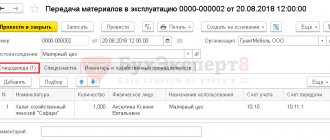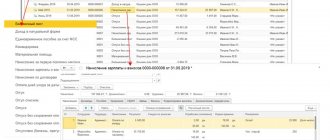Grounds for revocation
The employer can recall an employee from vacation (Part 2 of Article 125 of the Labor Code of the Russian Federation). For example, such a need may arise if:
- the organization carries out an inventory and the presence of a materially responsible person is mandatory;
- the organization is conducting an on-site tax audit, during which the chief accountant will have to be at the workplace;
- the system administrator is called back from vacation due to problems with computer networks, etc.
A prerequisite for issuing a recall from vacation is the employee’s consent to return to work. If the employee does not agree to the recall, it is prohibited to interrupt the vacation. This follows from Part 2 of Article 125 of the Labor Code of the Russian Federation. An employee’s refusal to go to work is not a violation of labor discipline (clause 37 of the resolution of the Plenum of the Supreme Court of the Russian Federation of March 17, 2004 No. 2).
Situation: how to formalize an employee’s consent to recall from vacation?
Labor legislation does not say how to formalize an employee’s consent to recall from vacation. To avoid possible claims from inspectors, formalize the employee’s consent to begin work in writing in one of the following ways:
– in the form of an employee application in any form;
– in the form of an employee’s mark on the order for recall from vacation: “I agree to recall from vacation.”
Revocation order
After receiving the employee’s consent, the employer issues an order to recall from leave. An order can be issued in the form accepted by the organization; there is no single template for it. But regardless of the form used, the order must contain:
- Full name of the employee;
- reason for revocation;
- a reference to the employee’s consent as a basis for revocation;
- the day on which the employee must begin work;
- the period for providing unused rest days, if the employee has already decided on this issue;
- familiarization of the employee with the order against signature.
Sample order
LLC BetaPlus
ORDER No. 10101-k dated April 10, 2021
about recall from vacation
Due to the illness of the sales department salesperson Ilyin A.P. and on the basis of a memo from the head of the sales department dated April 8, 2020 and the consent of the seller of the sales department, K.V. Petrov. dated April 8, 2021,
I ORDER:
- Recall seller K.V. Petrov from annual paid leave.
- Sales department salesperson K.V. Petrov start work on April 10, 2021.
- The unused part of the annual paid leave in the amount of 10 calendar days should be provided to the seller K.V. Petrov. from June 1, 2021, according to his statement.
- Chief accountant Sinichkina E.P. carry out a recalculation of accrued and paid to Petrov K.V. vacation pay and accrue wages from the date of return to work.
- Entrust control over the execution of the order to the head of the personnel department, E.P. Tikhomirova.
General Director /date, signature/
The following have been familiarized with the order:
Seller K.V. Petrov /date, signature/
Chief accountant Sinichkina E.P. /date, signature/
Head of the HR Department Tikhomirova E.P. /date, signature/
Compensation for the rest of the vacation
When recalling, the employee must be compensated for that part of the vacation that remains unused. In this case, the employee can choose:
– use this part of the vacation at any time convenient for him in the current year;
– add the unused part of the vacation to the vacation for the next year.
This is stated in Part 2 of Article 125 of the Labor Code of the Russian Federation.
Information about the recall of an employee from vacation and about the transfer of vacation to another time should be reflected in the vacation schedule in form No. T-7, approved by Resolution of the State Statistics Committee of Russia dated January 5, 2004 No. 1, or in an independently developed form.
If the employer does not compensate for the balance of days not taken off, this will be a violation of the employee’s rights. Administrative liability is provided for such actions.
Situation: how to process a refund of vacation pay when an employee is recalled from vacation?
Use an option that the employee agrees with.
Vacation pay for the entire vacation is paid to the employee three days before the start of the vacation (i.e., before it becomes clear that the employee will return to work early). This is stated in Part 9 of Article 136 of the Labor Code of the Russian Federation.
The employee must return part of the vacation pay for unused vacation days.
An organization cannot withhold overpaid vacation pay on its own initiative. Article 137 of the Labor Code of the Russian Federation does not provide such a basis for withholding.
Therefore, an organization can only:
– agree with the employee that he will return the money to the cashier;
– register overpaid vacation pay as an advance against future salary;
– withhold overpaid vacation pay from the employee’s salary on his initiative (at his request).
In any case, the employee must agree to the return (retention).
Specify the procedure for withholding overpaid amounts of vacation pay in the order for recall from vacation.
Recalculation of previously paid vacation pay
As soon as the employee returns to work, from the 1st day of early leave, his salary is calculated.
In this case, the accounting department needs to recalculate the previously paid amount of vacation pay.
Vacation amounts are recalculated as follows:
The average daily earnings must be multiplied not by 28 calendar days, but by the number of days that the employee who returned from vacation actually took time off.
The resulting difference between the “old” amount of vacation pay (vacation pay that was paid to an employee of the organization when he went on vacation) and the “new” amount of vacation pay (vacation pay calculated in the above order in connection with the recall of an employee of the organization from vacation for the actual days of his use of vacation) It may be (by agreement with an employee of the enterprise):
- credited to wages; or
- returned by the employee to the company's cash desk.
The employee will have to “return” the unused portion of the vacation.
The employee can dispose of it at his own discretion:
- take a walk at any convenient time during the current working year;
- add to vacation for the next working year.
In order to avoid additional approvals and red tape, it is advisable, when hiring an employee of an organization and concluding an employment contract, to stipulate in advance and stipulate in it the possibility of recalling a company employee from vacation, taking into account the norms of current labor legislation.
The procedure for recalculating vacation pay
The recalculation procedure is as follows. From the total amount of vacation pay, you need to subtract vacation pay that falls on days that the employee did not have time to take “time off.” For those days that the employee worked instead of vacation, accrue his salary in the general manner.
Later, when the employee decides to use the remaining vacation days, recalculate the average earnings to pay for them (Article 139 of the Labor Code of the Russian Federation, clause 1 of the Regulations approved by Decree of the Government of the Russian Federation of December 24, 2007 No. 922).
Reverse excessively accrued vacation pay in accounting. Make corrections in the month in which the employee was recalled from vacation (clause 18 of PBU 10/99, clause 2 of the Instructions to the Unified Chart of Accounts No. 157n).
An example of vacation pay recalculation. An employee is recalled from vacation in the month it began
Chief accountant of the organization A.S. Glebova was granted basic paid leave of 14 calendar days, from August 10 to August 23, 2015. Glebova’s salary is 25,000 rubles. Glebova’s average daily earnings (for calculating vacation pay) is 850 rubles.
Glebova was accrued vacation pay in the amount of 850 rubles/day. × 14 days = 11,900 rub.
The employee does not have rights to deductions for personal income tax.
Personal income tax calculated from vacation pay was: 11,900 rubles. × 13% = 1547 rub.
Five days before the start of the vacation (July 6), the employee was paid vacation pay in the amount of 11,900 rubles. – 1547 rub. = 10,353 rub.
On the same day, personal income tax from vacation pay was transferred to the budget.
Due to operational needs (conducting an on-site tax audit in the organization), on August 17, the employee was recalled from vacation. She agreed to go to work.
In connection with the recall from vacation, the accountant recalculated vacation pay, based on the fact that Glebova was actually on vacation for 7 days (from August 10 to 16): 850 rubles/day. × 7 days = 5950 rub.
Personal income tax on vacation pay amounted to: 5950 rubles. × 13% = 774 rub.
The employee was overpaid vacation pay in the amount of RUB 10,353. – (5950 rub. – 774 rub.) = 5177 rub.
The overpayment for personal income tax amounted to: 1,547 rubles. – 774 rub. = 773 rub.
In total, for August, Glebova was accrued vacation pay in the amount of 5,950 rubles. and salary for days worked from August 1 to August 9 and from August 17 to August 31, 2015 (16 working days). In August 2015 – 21 working days. The employee's salary is: 25,000 rubles. : 21 days × 16 days = 19,047.62 rub.
For August 2015, Glebova was accrued: RUB 19,047.62. + 5950 rub. = 24,997.62 rub.
Previously, she had already been paid vacation pay in the amount of 10,353 rubles. (including overcharged ones). Thus, the amount due for payment for August is equal to: RUB 24,997.62. – (RUB 24,997.62 × 13%) – RUB 10,353. = 11,394.62 rub.
Personal income tax calculated based on the results of the month amounted to: 24,997.62 rubles. × 13% = 3250 rub.
Personal income tax in the amount of 1547 rubles. has already been transferred to the budget on the day of payment of vacation pay. By this amount, the accountant reduced the personal income tax subject to withholding based on the results of August 2015. At the end of August, personal income tax was transferred to the budget in the amount of 3,250 rubles. – 1547 rub. = 1703 rub.
Recalculation of insurance premiums
Insurance contributions to extra-budgetary funds and contributions to the Social Insurance Fund of the Russian Federation in case of injury are calculated based on the results of each month (clause 3 of Article 15 of the Federal Law of July 24, 2009 N 212-FZ and clause 4 of Article 22 of the Federal Law of July 24, 2009 N 125 -FZ). The base for calculating insurance premiums also includes vacation pay amounts. If the employee is recalled from vacation in the same month in which vacation pay was accrued (see example 6), then no adjustments to insurance premiums are required. The base for calculating insurance premiums includes only those amounts that relate to actually used vacation days. If vacation pay is accrued in one month and is already included in the base for calculating insurance premiums, and the employee is recalled from vacation in the next month, then an overpayment of insurance premiums will result in the part related to excessively accrued vacation pay. In this case, when recalculating vacation pay, reverse the amount of contributions calculated from excessively accrued vacation pay. The overpayment will be taken into account when transferring insurance premiums for the month in which the recalculation is made. Please note that insurance premiums are recalculated for the month in which the employee was recalled from vacation. There is no need to submit detailed calculations. Firstly, the need for recalculation arose in the month in which the employee was recalled from vacation, and not in previous periods. And secondly, there is an overpayment of insurance premiums, which does not entail the accrual of penalties. If the vacation began in one month, and the employee was recalled from vacation in the next month, the adjustment of insurance premiums is made in the month in which the vacation was interrupted.
Example 7 . Let's use the conditions of example 6, changing them slightly. Let's assume that the company pays injury insurance premiums at a rate of 0.2%. On August 31, for the amount of vacation pay paid to A.S. Galkina (born in 1975), the accountant calculated insurance premiums: Debit 96 Credit 69 subaccount “Settlements with the Pension Fund for the insurance part of the labor pension” - 3182.66 rubles. (RUB 19,891.62 x 16%) - pension contributions were accrued to finance the insurance part of the labor pension; Debit 96 Credit 69 subaccount “Settlements with the Pension Fund for the funded part of the labor pension” - 1193.5 rubles. (RUB 19,891.62 x 6%) - pension contributions have been accrued to finance the funded part of the labor pension; Debit 96 Credit 69 subaccount “Settlements with the Social Insurance Fund for social insurance contributions” - 576.86 rubles. (RUB 19,891.62 x 2.9%) - social insurance contributions have been accrued; Debit 96 Credit 69 subaccount “Settlements with FFOMS” - 1014.47 rubles. (RUB 19,891.62 x 5.1%) - contributions for health insurance to the Federal Compulsory Medical Insurance Fund have been accrued; Debit 96 Credit 69 subaccount “Settlements with the Social Insurance Fund for contributions for injuries” - 39.78 rubles. (RUB 19,891.62 x 0.2%) - contributions for injuries have been assessed. What adjustments need to be made in accounting for the amount of insurance premiums if A.S. Galkina was recalled from vacation on September 5, 2013? Solution. The amount of vacation pay accrued for the actual days of vacation (10 calendar days) amounted to 14,208.3 rubles. (RUB 1,420.83 x 10 calendar days). Insurance premiums that should be accrued for this amount amounted to: - 2273.33 rubles. (RUB 14,208.3 x 16%) - contributions to finance the insurance part of the labor pension; — 852.5 rub. (RUB 14,208.3 x 6%) - contributions to finance the funded part of the labor pension; — 412.04 rub. (RUB 14,208.3 x 2.9%) - social insurance contributions; — 724.62 rub. (RUB 14,208.3 x 5.1%) — health insurance contributions to the Federal Compulsory Medical Insurance Fund; — 28.42 rub. (RUB 14,208.3 x 0.2%) - contributions for injuries. The accountant must reverse the amounts of overpaid insurance premiums. On September 30, 2013, the following entries will be made in the accounting of Salut CJSC: Debit 96 Credit 69 subaccount “Settlements with the Pension Fund of the Russian Federation for the insurance part of the labor pension” - 909.33 rubles. (RUB 3,182.66 x RUB 2,273.33) — pension contributions have been accrued to finance the insurance part of the labor pension; Debit 96 Credit 69 subaccount “Settlements with the Pension Fund for the funded part of the labor pension” - 341 rubles. (1193.5 rubles x 852.5 rubles) - pension contributions have been accrued to finance the funded part of the labor pension; Debit 96 Credit 69 subaccount “Settlements with the Social Insurance Fund for social insurance contributions” - 164.82 rubles. (576.86 rubles x 412.04 rubles) - social insurance contributions have been calculated; Debit 96 Credit 69 subaccount “Settlements with FFOMS” - 289.85, rub. (RUB 1,014.47 x RUB 724.62) — contributions for health insurance to the Federal Compulsory Medical Insurance Fund have been accrued; Debit 96 Credit 69 subaccount “Settlements with the Social Insurance Fund for contributions for injuries” - 11.36 rubles. (39.78 rubles x 28.42 rubles) - contributions for injuries.
Documenting
The documents required for this procedure must be completed in the following sequence:
Service memo
This document is drawn up by the head of the department in which the employee works, addressed to the head of the enterprise.
The note is drawn up in any form; it usually describes the reasons why the employee should be recalled. The manager studies the stated reasons and decides either to refuse this request or to agree to the proposed procedure.
Contacting an employee
In addition to verbal communication (for example, by telephone), a written document must also be drawn up. It is drawn up in any form and contains a written offer to return to work. The appeal can also include a column where the employee will mark his decision - consent or refusal.
Revocation order
If the subordinate agrees to interrupt the vacation, the employer must issue a corresponding order. There is also no established form of the order; it is drawn up in any form and in accordance with the general requirements that apply to this document. The order contains the following information:
- the fact that the employee was recalled from vacation;
- reasons and grounds;
- the date from which the vacation is interrupted;
- further actions regarding unused vacation days (compensation in cash or addition to the next vacation);
- the need for recalculation.
The employee must be familiarized with this order against signature.
Making changes to the vacation schedule
The corresponding columns of the document indicate the date of the new proposed leave and the basis for the transfer, that is, the previously issued order.
Making changes to an employee’s personal card
The dates of the previously indicated vacation are crossed out with one line, and new ones are entered below. The order must also be indicated as the basis.
If an employee refuses to interrupt his vacation, the employer cannot force him to do so or punish him in any way.
Even if the reasons for the recall are really serious, the employee himself has the right to decide on early return to work.
Is it possible without recalculating vacation pay?
An employee can be recalled to work without recalculation if the unused days are postponed to the near future - in the current month.
For example, an employee will go out for a few days to solve some important problem and then go on to rest.
There is no need to recalculate vacation pay in such a situation.
On days off, wages will be accrued, and the employee will complete his paid vacation in full.
If unused days are transferred to subsequent months of the current year or to the next year, then it is better to recalculate.
When going on vacation at a later date, the billing period changes, which means the amount of vacation pay will be different.
Employee recall from vacation
The next situation where it may be necessary to recalculate personal income tax and contributions if there are no errors in calculating vacation pay is when an employee is recalled from vacation. Let us recall here that the employer has the right to recall an employee from vacation only with his consent (Article 125 of the Labor Code of the Russian Federation). Apparently, this is why the Labor Code does not regulate monetary issues related to recall from vacation at all. Most likely, legislators assumed that these issues would be resolved individually in each specific case when obtaining the employee’s consent to recall from leave.
Be that as it may, the Labor Code of the Russian Federation itself does not contain any provisions regulating the procedure for returning or offsetting amounts paid as vacation pay in a situation where an employee is recalled from vacation. At the same time, the employer does not have the right to independently withhold such amounts (Article 137 of the Labor Code of the Russian Federation). However, the accountant must recalculate vacation pay, since amounts paid that fall due after recall from vacation lose the status of vacation pay. Depending on the agreements with the employee, recalculation of vacation pay when recalled from vacation can lead to various consequences. Let's take a closer look at them.
If the entire amount of vacation pay remains with the employee
Let us assume that the parties to the labor relationship have agreed that the entire amount of vacation pay remains at the disposal of the employee recalled from vacation (i.e., part of this amount becomes a kind of payment for interrupted vacation). In this case, on the date of signing the relevant agreement (or on the date of issuance of the recall order, which states that the vacation pay remains with the employee), the amount of vacation pay that falls on the time after going to work will lose the status of average earnings retained for the period of vacation. But at the same time, the employee’s income paid before the vacation will remain. Accordingly, in terms of insurance premiums, no consequences will arise for the organization: neither the date nor the amount of accrual changes, and the type of taxable accrual does not matter here (clause 4 of Article 431 of the Tax Code of the Russian Federation).
But in terms of personal income tax, the accountant will have to adjust the type of income in the tax accounting registers, dividing vacation pay into two parts: the actual average earnings saved for the duration of the actual vacation (i.e., for the period before recall from vacation), and other income. The first type of income is reflected in the reporting using code 2012, and the second has code 4800 (Appendix No. 1 to the order of the Federal Tax Service of Russia dated September 10, 2015 No. MMV-7-11 / [email protected] ).
Moreover, in a situation where recall from vacation occurred after personal income tax on vacation pay was transferred to the budget, changing the income code will not entail any additional consequences for the tax agent organization. Things are different if, on the date the employee is recalled from vacation, personal income tax from vacation pay has not yet been transferred to the budget (recall that clause 6 of Article 226 of the Tax Code of the Russian Federation allows this to be done on the last day of the month in which the average earnings were paid). In this case, the organization needs to transfer personal income tax on that part of the vacation pay that has turned into “other income” no later than the next working day after reaching an agreement with the employee that all vacation pay remains at his disposal.
If the employee returns vacation pay for the recall period
The second possible scenario: the employee recalled from vacation returns the “extra” vacation pay to the organization’s account or cash desk. Such a return leads to the fact that the corresponding income in the form of vacation pay is reduced, which means that there is an overpayment of insurance premiums and excessively withheld personal income tax. Let's look at how this will affect the company's reporting.
Let's start with personal income tax. It all depends on the period in which the employee returns the money. If the return of income occurs before the tax agent has submitted the 6-NDFL calculation reflecting vacation pay, then no “clarifications” will be required: both sections of the calculation will immediately include the adjusted amounts of income and calculated personal income tax. In other words, on lines 020 and 130 it will be necessary to show only that part of the vacation pay that actually remained at the employee’s disposal. Accordingly, on line 040 you should indicate personal income tax calculated on real income. You should also immediately reflect in the calculation the adjusted data on lines 070 and 140, since part of the personal income tax from the returned amount of vacation pay will lose the status of withheld from the income of an individual and will turn into the money of the company itself - the tax agent (clause 9 of Article 226 of the Tax Code of the Russian Federation, letter from the Ministry of Finance of Russia dated 04/29/14 No. 03-04-05/20252). These funds, if they have already been transferred to the budget, the organization can return or offset against the payment of other taxes (Article of the Tax Code of the Russian Federation, letters of the Ministry of Finance of Russia dated 04.29.14 No. 03-04-05/20252, Federal Tax Service of Russia dated 07.04.11 No. ED-4-3/10764, dated 10/19/11 No. ED-3-3/3432 and dated 02/06/17 No. GD-4-8/ [email protected] ).
If the employee returned the money after the calculation of 6-NDFL with the amount of vacation pay was transferred to the Federal Tax Service, then an updated calculation will have to be generated (clause 6 of Article of the Tax Code of the Russian Federation). It is filled out in exactly the same way as described above (i.e. in a situation where the employee returned the money before the accountant submitted the 6-NDFL calculation).
Fill out, check and submit 6‑NDFL for free through Kontur.Extern
As for the calculation of insurance premiums, here the organization has no other way to reflect the overpayment of premiums other than to submit an updated calculation. It must indicate the reduced amount of vacation pay and, accordingly, the reduced amount of insurance premiums.
How to process a refund and recalculation of vacation pay
In any situation related to the early termination of vacations, there is necessarily a need to recalculate previously accrued and issued vacation pay. What ways does the law provide for resolving this issue?
Let's start with the fact that the law clearly states that vacation pay must be paid in full to the employee three days before the start of the vacation.
It is clear that from the moment the employee is recalled, he begins work, for which wages are already paid. There are several ways to bring the financial component of this part back to normal:
Attention! If an employee completes his vacation in the same calendar month in which he was recalled, then part of the vacation pay may not be returned. This is the most convenient and optimal way out of the situation, both for the accounting staff and for himself.
By the way! When recalling an employee from vacation, you will have to recalculate not only vacation pay, but also personal income tax (NDFL).







